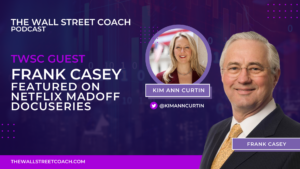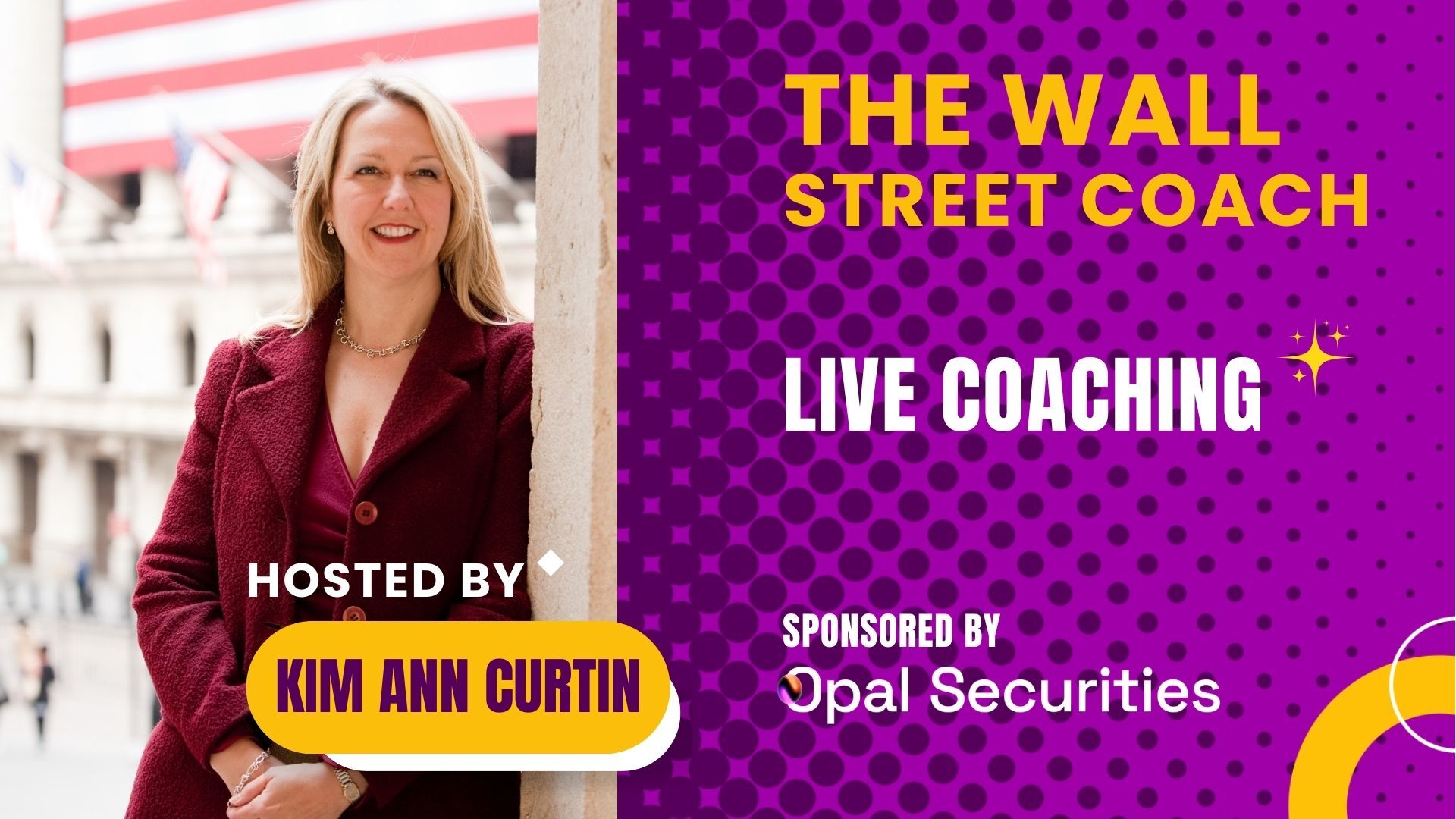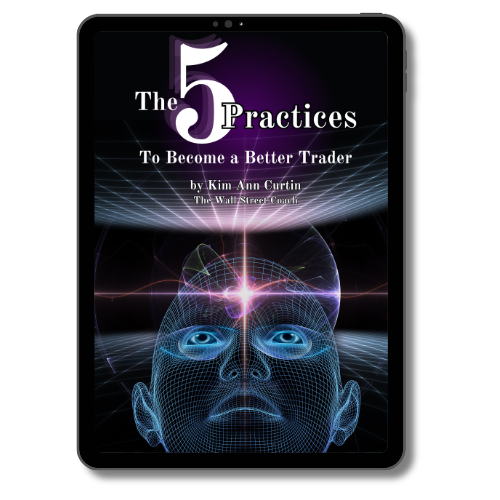
In case you haven’t heard, there’s a new Bernie Madoff docuseries on Netflix — “Madoff: The Monster of Wall Street.” And guess who’s prominently featured … none other than Frank Casey, who was featured on The Wall Street Coach Podcast last year!
(Frank was also featured in my book, “Transforming Wall Street” — and I’ve gotta say, his interview was among the longest and most harrowing in the book!)
While Madoff’s massive Ponzi scheme was exposed over a decade ago, there are still plenty of lessons that traders and investors can learn from it…
To celebrate Frank’s appearance on the buzz-worthy new Madoff docuseries, I’ve put together a list of reasons why this story still matters — and some important takeaways for traders and investors.
Note: Have you checked out the Frank Casey interview on The Wall Street Coach Podcast? If not, I urge you to check it out here or below!)
History Repeats
It would be great to say that people learned their lesson from the Madoff experience. But given the recent events in the crypto market, that may not be the case…
In fact, this is a topic that came up in my recent podcast interview with Anand Sanghvi of SangLucci (check it out here or below). In it, he speaks to the incredible turn of events that led to the FTX crash. He observed, “In one day, it went from ‘we’re on top of the world’ to ‘we’re shutting down’…”
It really did feel like the end of the world for some people. Sanghvi also spoke to the shock that he and other traders felt: “While it’s happening, you just can’t believe it. You’re like a deer in headlights. Is this really actually happening?”
Yep. It was really happening. And Madoff’s investors probably felt the same way.
While Madoff’s Ponzi scheme was very different from the FTX crash, they do have several things in common…
If It Looks Too Good to Be True…
When the market went up, Bernie Madoff’s profits went up. When the market went down, his profits went up, too. In fact, they always went up. It seems too good to be true.
The problem? It was too good to be true. Harry Markopolis, another player in the Madoff takedown who worked with Casey at Rampart Investment Management, realized that Madoff’s returns simply weren’t possible. He rang the alarm bell early — but was ignored for years.
All the while, Madoff’s investor list kept growing. One big reason?
They didn’t want to see how the sausage was made.
They saw Madoff’s fancy offices. Even more important, they saw the returns on their statements. They didn’t question the fact that those statements were on dot-matrix printouts or that Madoff was very secretive about his strategy. Most people figured he was some sort of investing genius.
It seemed too good to be true. It seemed like they’d cracked the code. As the Madoff docuseries reveals, even those who were sometimes wary of Madoff were still fooled by the veneer.
What lesson can traders and investors take from this?
Before you commit, whether it’s to a single trade or to a multimillion-dollar investment, ask yourself: does this look too good to be true?
Is this really going to be a home run, or are you just feeling FOMO?
Of course, asking questions like these requires being honest with yourself. It requires understanding what needs you may be trying to fill with trading. New to the topic? I speak about it at great length in my e-book series — check them out here.
Be honest with yourself about if it’s really a great opportunity or if it’s too good to be true! That brings us to the next point…
Really Do Your Due Diligence
Frank Casey is a finance guy. When he was first exposed to Madoff, he was intrigued. But he also asked a lot of questions.
Obviously, a lot of people did not.
Over the years, there were plenty of attempts to see what Madoff was doing. To their credit, Madoff was slippery — he managed to elude much of the prodding. But there were still plenty of opportunities for people to see that things didn’t add up.
In fact, as the docuseries shares, there were several points throughout the Ponzi scheme that just a little follow-up could have revealed the entire thing.
There’s a powerful lesson in this for traders and investors…
Really do your due diligence.
Don’t be afraid to dig deep. If you’re considering an investment, get obsessed with it. Learn everything you can. Ask the tough questions.
For day traders, due diligence won’t always mean researching a particular stock, since the pace is too fast and fundamentals don’t always matter as much. In that case, due diligence is more about taking the time to really understand the patterns and setups you’re trading so that you can really be confident when you trade. If you’re not, take a step back. Paper trade, or simply observe the market. That research time might not feel like you’re “doing” anything, but you are.
There’s No Easy Fix.
Many of Madoff’s victims were long-term investors.
They did not have a “get-rich-quick” mindset. But investing with Madoff seemed simpler than other investment vehicles that didn’t have the same returns.
This is a reminder that even sophisticated traders and investors need to hear sometimes…
There’s no easy fix. You can’t hack the system.
You might be making great investments left and right, but that doesn’t mean the same approach and strategy will keep working forever.
Or you can be on a tear during a bull market, but then when the market shifts, you don’t know what to do with yourself. You start taking trades you shouldn’t, which can lead to losses — and a dangerous cycle of shame and inner sabotage.
That’s been happening a LOT in this tough market. If you’ve been struggling, I suggest that you listen to my recent interview with Joe Fahmy (listen here, or below). He’s so supportive and uplifting even in this dreary market — it’s a must-listen.
The lesson for traders?
Be patient. Wait for your setups, even if they’re few and far between. Or, if you’ve had to adapt your strategy, be patient with yourself while you get up to speed.
And if you’re an investor? Don’t just settle for the “easy” solution. Madoff’s fund looked like an easy way to invest and make money for the future. But that so-called “easy” solution ruined people financially. Sorry, but there’s no quick or easy fix.
Madoff Docuseries: Must-See TV…
Have you checked out the new Madoff doc? What did you think? Leave a comment below! If not, I hope you’ll check it out and pay extra attention to Frank Casey’s interviews — not only can this Irishman spin a yarn, but you’re going to learn some powerful lessons, I promise.
Looking to increase your self-awareness and EQ in the coming year so you can become a stronger and more confident trader or investor? Please reach out today.


